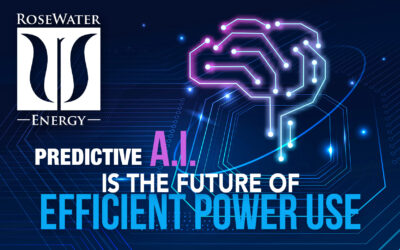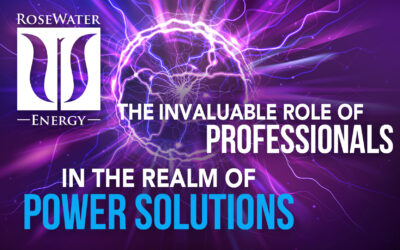It’s not “Either Or”, It’s “Rosewater And…” In the ever-evolving dialogue about energy, there’s a prevalent notion of replacing one technology with another. But what if we took a different approach?
At Rosewater, we champion a synergy of technologies. It’s not about replacing – it’s about enhancing.
Why Rosewater?
Rosewater stands as the cornerstone to various energy forms, elevating the performance of all input types. Our combinations include:
1️⃣ Rosewater HUB + Generator: Supercharges generator power. Zero transfer time. A combo that’s trusted by many!
2️⃣ Rosewater + Renewables: Say goodbye to transfer times. Ensures renewables work, even when the grid’s out. Lengthens battery lifespans. Premium power quality assurance.
3️⃣ Rosewater + Large-Scale Battery Backup: Seamless transfer. Shields essential sub-systems from unpredictable power swings. Some sub-systems get the green light without needing power conditioning.
Our signature product, the HUB, isn’t named by accident. Acting as the central conduit for all energy, it truly signifies why all energy should pass through Rosewater. Discover Rosewater – The Ultimate Energy Solution.
Transcript
Bobby Brill:
Welcome to another edition of the podcast. It is so great to talk with you, Joe Piccirilli, because you always bring so much great information and knowledge. And last time you really talked a lot about power and power situations. But now we really want to get into the foundational types of energy and how they improve the performance with all types of inputs. So walk us through that a little bit.
Joe Piccirilli:
Well, I’d be happy to. But Bobby, first I have to say hello.
Bobby Brill:
Of course. I know. I’m always trying to steamroller over you.
Joe Piccirilli:
It’s always interesting to do the podcast because there’s such a wide variety of topics to talk about. And as you pointed out today, I wanted to talk about how RoseWater products really pair with other sorts of renewable and traditional sources of power in a house. Because what I find out there is that people think that, “Oh, it’s RoseWater or this, it’s a generator and nothing else.” So I really wanted to just spend a few moments talking about combinations, and it’s really why we call RoseWater the Hub. And I think the first combination I want to start with, which is the most common that people use for backup, and that is a generator.
Bobby Brill:
Right. We see them everywhere.
Joe Piccirilli:
If you live in an area like I live in, which is South Florida where we have hurricanes, I mean, a lot of houses have a generator. And a generator is great for backing up in a long-term outage situation. And if you have a hurricane, you could lose power for a couple of days, or in some cases extreme a few weeks. And a generator is by far the best thing to have for a long-term power outage. However, a generator creates a set of problems all of its own, because a generator doesn’t generate very much clean power. And when you think about it, because generators, no matter what the size, can’t anticipate a load.
If you have your generator running and an air conditioner kicks on, the generator will sag, the voltage will drop, and the generator will rev up to catch up. So there’ll be this sag that could last 30 seconds, a minute, depending on what kind of generator you have and how big the draw is. And when that air conditioner kicks off, it spikes because the generator still thinks it’s feeding a much bigger load. And that’s where the RoseWater really plays in because the RoseWater device ensures constant voltage at all times. So regardless of what the generator’s doing, the RoseWater will always output 120 volt.
Bobby Brill:
And to clarify, why is that so important to have that consistent level of power and not deal with these spikes?
Joe Piccirilli:
I thought you would never ask. I mean, in today’s world, as we’ve discussed on many of our podcasts, our houses are filled with microprocessors. And in the old days when I grew up, you might be too young for this, but the consequences of a voltage variation to a microprocessor, the timer on the VCR blink.
Bobby Brill:
Right.
Joe Piccirilli:
You have to reset it. Oh, no!
Bobby Brill:
The end of the world has happened.
Joe Piccirilli:
Reset my VCR. Well, in today’s world, since all of your lights are controlled by microprocessors, all of your networking, virtually everything in your house is controlled by microprocessors. A voltage fluctuation can cause a processor and a light to go off, and now you can’t turn on your lights. Or if you have children and your network goes down, your house becomes an insane house.
Bobby Brill:
That’s right. We can’t live without our streaming services and virtual babysitters. I can live without my air conditioner for five minutes, however, let’s get real. And people working from home and those important things, I guess.
Joe Piccirilli:
Exactly. And the other thing with a generator is when power goes off, a generator is signaled to turn on by something called a transfer switch, because you can’t have the generator and the grid running at the same time. So there is a time lag between power off and generator on. And then depending on the load and where the generator starts up, there’s either a SAG or a surge at startup that again will never be experienced with a RoseWater because the RoseWater is constantly engaged. There is no transfer time on the RoseWater. It’s just if power goes out, you won’t notice.
Bobby Brill:
But that also applies to that other big giant elephant that’s wrapped itself around all of our rooms. This renewable energy, is that different or separate from the grid? Or is this an additional type of solution or something?
Joe Piccirilli:
Renewables is a great question, because you’re using renewables. If you have renewables without battery backup, be it RoseWater or somebody else’s, when the grid goes down, renewables shut off. So that’s problematic. And there’s a reason for it because when you have renewables on your roof, they’re not only feeding your house, they’re feeding the grid.
Bobby Brill:
Okay.
Joe Piccirilli:
And they’re moving the grid and power’s down, and somebody goes to work on the grid, they could die.
Bobby Brill:
Got it.
Joe Piccirilli:
Because it’s feeding back through the wires.
Bobby Brill:
Okay, interesting.
Joe Piccirilli:
With battery backup, there is again a transfer switch where the renewable is now feeding the battery, and then the battery is feeding the house. And what happens within the setup of those inverters is it shuts off power to the grid, so that it’s called islanding, and that makes it safe. So renewable energy with battery backup, be it RoseWater or somebody else’s, is the only way to really usea renewable if you will.
Bobby Brill:
Well, that’s interesting the way you explain that because I think everybody that has renewable, especially solar, you think it’s this magic switch that, well, we’re now running on the sun. And we’ve talked about if there’s no sun, there’s no power. But the other idea of, “Well, the power went off, so my solar should automatically kick in.” But if there’s nothing for it to kick to, is that the right analogy? Then there’s nothing happening.
Joe Piccirilli:
What happens when it’s feeding your house, you’re close. Because when it’s feeding your house, renewables produce direct current. House runs on alternating current. Well, on the renewable itself, there is an inverter which takes direct current and makes it alternating current. The minute power goes down, those inverters are shut off. They run on grid power, not solar power. And that is done for safety reasons. And unless you have a battery and use the inverters that go with the battery, power’s off, your renewables are off.
Bobby Brill:
Okay. That’s an interesting… Because I don’t think a lot of people ever have put that together.
Joe Piccirilli:
Or they find out too late.
Bobby Brill:
Right.
Joe Piccirilli:
And it’s fine. And it’s amazing because you think everybody would tell them.
Bobby Brill:
Sure. Well, especially from getting down to that whole sales and money side. If one without the other, it’s like, “Great, I have a beautiful car, but I have no tires. So what?”
Joe Piccirilli:
Looks good in the garage.
Bobby Brill:
Right. “Look at my house. I’ve got these really shiny reflective things on top. I look cooler than you, except we’re all standing outside when the power’s out.”
Joe Piccirilli:
It’s the perfect definition of eco bling. I have my fill-in-the-blank house.
Bobby Brill:
Okay, that’s one that I’m hoping we’re keying on enough for people to listen to because that’s a massive issue that I think nobody is really paying attention to.
Joe Piccirilli:
Well, I want to finish up a couple things here with renewables before we go too far. One of the things about RoseWater, as opposed to your solar panels. If your solar panels are driving the house, they’re functioning, they’re up. Solar, by its very nature, if it is not hooked up to batteries, it is intermittent, because other cloud loads comes by, the amount of solar produced could drop by 90%. And even if it’s for fractions of seconds, that’s extremely detrimental. Which is why for solar to operate properly, it should be hooked up to batteries. And for optimization, it should be hooked up through a RoseWater.
Bobby Brill:
Sure. Absolutely.
Joe Piccirilli:
Because the RoseWater will always guarantee, regardless of what solar is doing, perfect power. And then when you’re running on grid, the solar, no matter, or the grid can be fluctuating just like your home generator. But through the RoseWater, which is always engaged, it will always be perfect, power. And it is to people who don’t really spend time digging into the minutia of this, this could seem very complicated. In many cases, disappointing. But those are the facts, and there’s really no way around, “Hey, this is what happened.”
Bobby Brill:
Well, but I mean, that’s something that I think so many people are forgetting when they’re building this investment for a very long term. It’s a long tail. There’s nothing exciting about this until you need it. And then it’s super exciting because you’re the only one with air conditioning, and streaming, and computers, and lights, and everything. It’s very important that it is a lot of sitting there reading and listening and talking to experts like you and go, “Oh, now I understand why I’m writing this check.”
Joe Piccirilli:
Exactly right. And it is important to have, as you’re looking at renewables, as you’re looking at products like RoseWater or large-scale battery backup, it is incredibly important that you go to multiple sources and find somebody who will, for lack of… I hate to be this blunt, but find somebody who’s really telling me the truth. Because the other way to make a viable investment is know the facts.
Bobby Brill:
Well, you mentioned something there that we’re hearing a lot more of too is large scale battery backup. I was in Costco yet again the other day, and I walked past the generator, and then the small battery backup and going, “Oh, okay, I live in California. It’s going to happen one of these days. How many of these do I need to get and all that.” But large scale battery backup, this is a newer, and correct me if I’m wrong, newer idea and newer concept in alternative power.
Joe Piccirilli:
Absolutely correct. It is newer, the amount of misinformation around. Our scale battery backup is enormous. But I have to thank our friends at Tesla for making it a household word there. I think their marketing budget might be bigger than the entire industry as at this moment. But indeed, what you look at when you’re looking at large scale battery backup is you’re looking at what is a generator replacement. We’re looking for, “Okay, when my power’s down, do I have enough battery capability to run my house for some period of time?” Now, it is not simple. You have to understand, and I don’t know whether we did this analogy before on previous podcasts. But we talked about a battery producing DC and a house running on AC current, alternating current. So if you think about a battery backup up, it is made of two components. Batteries, inverter.
If you put this in the realm of an automobile, the inverter is the car engine. It has 100 horsepower. The batteries are the gas tank. And no matter how big you make the gas tank, the power of the engine is not going to increase. Just the length of time you can run the engine is what increases. So with solar or with large scale battery backup, one of the first things you need to know is how big is the inverter? And there are some rules of thumb that you should think about. If you have, for instance, a hundred amp service where your house is actually drawing 100 amps, which a fairly large home draws a 100.
Bobby Brill:
Right. That’s pretty common. A 100 amps is pretty common. Yeah.
Joe Piccirilli:
The inverter size has to be 20 kilowatts, instead of seven kilowatts, five kilowatts, which many of these are. So when you see small inverter sizes, they’re telling you, “We can only run a part of your Hub, not the whole Hub.”
Bobby Brill:
Okay, this is that math that we all forgot about. But extremely important when we’re talking about your whole house, everything all the time like nothing happened.
Joe Piccirilli:
A Tesla Powerwall, according to Tesla’s owner’s manuals, will continually provide 30 amps. So in order to run your whole house, you need multiple.
Bobby Brill:
Right. 30 amps is what? Your washer, dryer, refrigerator, TV, and a microwave. But you better not do it all at once because you’re going to be in trouble.
Joe Piccirilli:
Yeah, again, we have to look at that for a bit. And because people don’t understand the draws of their stuff. Like a refrigerator, people go, “Oh, my draws are…” They add up the numbers on the breakers, which isn’t close to true. Because your refrigerator, for instance, runs on a… Many of them demand a 20 amp breaker. Well, a refrigerator only draws a lot when you’re cooling the box. Once the box is cool, it draws two amps.
Bobby Brill:
Okay.
Joe Piccirilli:
Big difference.
Bobby Brill:
A lot of savings or free amperage, so to speak.
Joe Piccirilli:
If you’re going to do large scale battery backup and with large scale battery backup, you can, if you’re working with somebody who actually knows what they’re doing, they will either clamp your house or calculate your load based on the appliances you want to run. When I say clamp your house, they’ll actually clamp the input of the house and leave the meter there for a couple of weeks just to see what you draw. And they’ll ask, “Hey, turn everything on because I want to see what it is when you’re just…” If you’re going to throw a party. If we’re silly enough to throw a party in a power outage, we might want to take some lessons in rationality or rational thinking. But that’s a different story. In many places, your state, they don’t want me to have generator.
There are places where your homeowner’s association doesn’t want you to have generators because they are noisy. So the only alternatives is well installed, well sized, large scale battery backup. Now, how does RoseWater fit in that picture? Because RoseWater is there not just for a power up. RoseWater is there 24/7. Whereas a battery backup system does not condition power when grid is off. Grid has to be off for a battery system. By the way, batteries produce nice, clean power, but only when things are out. So RoseWater and a large scale battery backup system work incredibly well together. And why would you not use RoseWater for a large scale battery? Because you can get fairly large scale with us. It’s because when you’re paying for whole house power conditioning, the scale of pricing changes dramatic. What you might want to do is take things like heavy motors, your air conditioning compressor, and your air handler, which don’t really need power quality because they’re not microprocessor intensive. And leave those off large scale battery backup.
Bobby Brill:
Okay. Okay.
Joe Piccirilli:
And then the rest of the house has a RoseWater.
Bobby Brill:
Okay. That’s an interesting thing. I think people also are forgetting that what’s mechanical. Or if you’re talking to a contractor, the mechanical in the HVAC world. And then the microprocessor really dividing… If you’re even sitting down with a piece of paper in a pen and going, “This is an old school system. This is full of computers. And we really need to segregate these into different types of power.” Correct?
Joe Piccirilli:
Yeah, that is absolutely correct. In fact, when we go in to apply, my RoseWater team, we actually create what we call a power plan for the house. And we break it up into three rings of protection. And the outer ring may be things you don’t want to protect at all, even in a power outage, because they’re not important and they’re just… I’d rather not spend the money on a generator or battery backup for those,
Bobby Brill:
Right. Something like maybe a pool pump, or the guest house, or something like that.
Joe Piccirilli:
And then you have the next ring in which are heavy motors, maybe some refrigeration, that kind of stuff, that’s a bigger draw. Electric ovens are really big draws. You might want to use those on battery backup because they don’t need powering conditioning. Although these days, appliances now, when I read the owner’s manuals, they teach you how to reboot them.
Bobby Brill:
Having had to personally reboot my refrigerator, I feel your pain.
Joe Piccirilli:
There you go. And then there’s the inner ring of microprocessor, lifestyle critical componentry that should be on a RoseWater. And we create the plan with the client. We just write it all out, and then we recommend they should have a generator or our scale battery backup. And the inner ring stuff should all have RoseWater and we size appropriately. Well, I think that’s when I say “RoseWater And”, that’s how we fit, we fit to enhance the performance of all of those others. And then we get this other weird question because they sell smaller scale power conditions.
Bobby Brill:
That was going to be my big question. We’ve got this large scale, which is a lot of investment in time and thinking, and can be daunting. There has to be baby steps.
Joe Piccirilli:
Well, in a situation where panel level, which is what RoseWater does, is either not within the budgetary considerations of the property, or can’t fit because our units are large. No matter what you do, you should always have on your critical components, some form of power conditioner. And there are companies out there that make local power conditioning, I call it rack level, because in a rack of equipment. That’s really quite good. Now, again, got to do some research to see who really does it well. If you are not getting full double conversion, don’t do it because it’s not doing anything for you.
And again, with RoseWater, a lot of times we sit down and say, “We can do most of your house, but there are a couple of things you might want to use small scale stuff for, because you’d have to take too much rewiring onto a panel.” So we sit down and we call a RoseWater And it’s part of the power plan. But we sit down and say, “Look, we are trying to right-size this for you. But more importantly, we are creating the protection that you need.” I mean, we ended up calling our product a Hub because that’s really its function. It is the hub of energy within the residence. So that’s my story. My story for today is really to talk about how this works, how we fit in the marketplace because I think it’s confusing. And, of course, you can get tremendous amounts of information by going to our website or just giving us a call.
Bobby Brill:
Joe, always a pleasure. You have given us so much great insight, which I think is going to make people that much smarter and that much more ready to make these steps. Again, always a pleasure. Thank you so much, Joe, for talking to us.
Joe Piccirilli:
Oh, you’re so welcome. Thanks, Bobby.
Bobby Brill:
Oh, thank you again.



